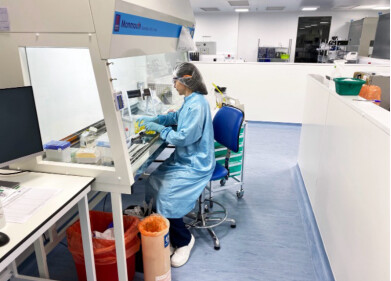Laboratory Products
Should You Finish Your Antibiotics Course?
Aug 04 2017
From strep throat to UTIs, antibiotics are the go-to medication for a host of viral infections. Until now, widespread advice has generally been that patients should always complete an entire course of antibiotics, regardless of whether symptoms clear up within a few days. But according to some NHS infection experts, it could be time to reconsider.
They argue that there simply isn’t enough evidence to support the idea that stopping courses early encourages antibiotic resistance. Instead, they stress that more studies need to be conducted in order to determine whether stopping courses early could help cut antibiotic use.
An avant-garde approach to antibiotics
Penned by a team of British researchers, the opinion piece argues that reducing antibiotic consumption is an important part of combating antibiotic resistance. It was led by Professor Martin Llewelyn from the Brighton and Sussex Medical School, who suggests that traditional prescriptions for antibiotics are based on the outdated idea that resistance develops when drugs aren’t given a chance to build up, and infections are undertreated. Instead, he claims that growing evidence supports the idea that short courses of antibiotics lasting just three to five days could be just as effective.
RCGP advocates for ‘clear message’
The study was quick to garner attention from the Royal College of General Practitioners (RCGP), with leader Professor Helen Stokes-Lampard saying that while it’s important to take new evidence into account, the college "cannot advocate widespread behaviour change on the results of just one study."
Instead, she stresses that "it's important that patients have clear messages and the mantra to always take the full course of antibiotics is well known – changing this will simply confuse people.”
New study sparks medical debate
Kieran Hand, spokesman for the Royal Pharmaceutical Society also chimed, praising the opinion article as a “welcome opening of the debate in the UK on the relationship between the length of a course of antibiotics, efficacy and resistance.”
So what’s the final verdict? Until Llewelyn and his colleagues are able to offer more evidence, the idea that antibiotic courses should be completed in full will remain the norm.
When it comes to manufacturing antibiotics water plays and all important role. Of course, this does mean there’s a risk of susceptibility to mould and bacteria. The US Food and Drug Administration (FDA) actively regulates water content and ensure the safety of consumers. For a closer look at the advanced technology being used to measure water activity ‘Solutions for Measurement and Monitoring of Water Activity’ spotlights the latest lab equipment from Rotronic, a global leader in measuring instruments and monitoring solutions.
Digital Edition
Lab Asia 31.4 August 2024
August 2024
Chromatography Articles - HPLC gradient validation using non-invasive flowmeters Mass Spectrometry & Spectroscopy Articles - MS detection of Alzheimer’s blood-based biomarkers Labo...
View all digital editions
Events
ACS National Meeting - Fall 2024
Aug 18 2024 Denver, CO, USA
Aug 25 2024 Copenhagen, Denmark
Aug 28 2024 Phnom Penh, Cambodia
Sep 04 2024 Chiba, Tokyo, Japan
Sep 04 2024 University of Warwick, Coventry, UK


















